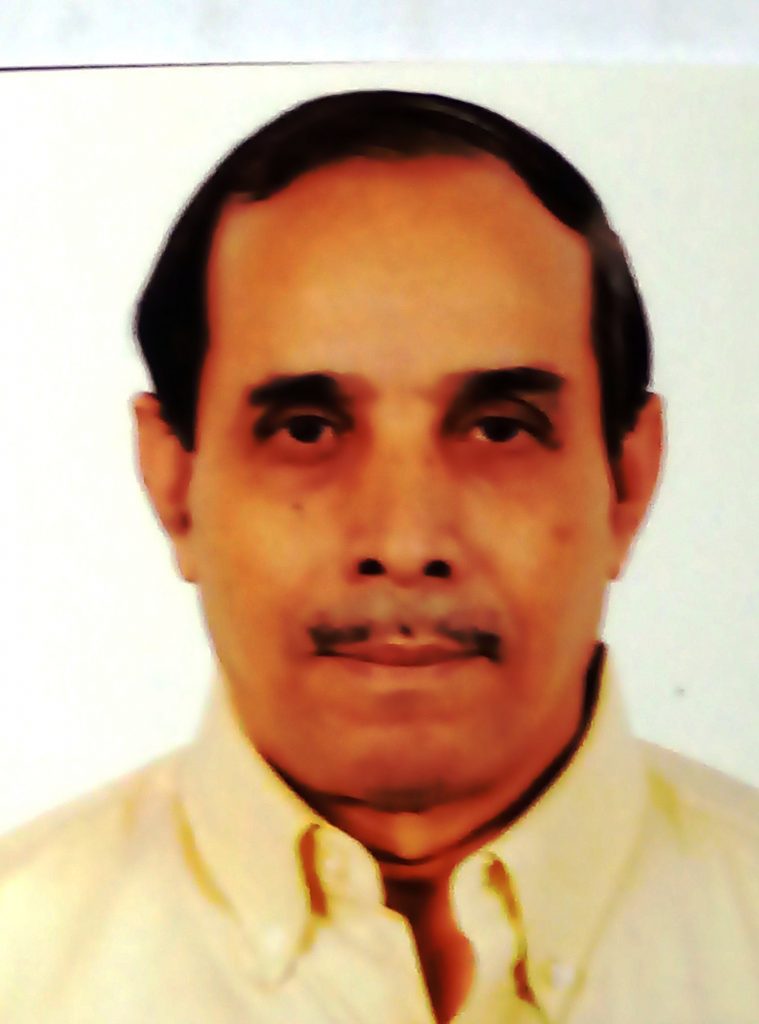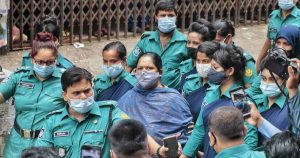Mostafa Kamal Majumder
When The New Nation became financial stable by the year 2007, the proprietor of the paper started experimenting with CSP cadre bureaucrats to establish themselves at its helm. They were retired secretaries to the government. I took it positively on two counts. First the addition of knowledgeable working hands would make the running of the paper more comfortable. Second the company of experienced people would be good for consultation to make good editorial decisions. But with the passage of days it became clear that the proprietor wanted to give them more importance than the editor which was me. The first bureaucrat was a former information secretary and was nice because of his openness of mind. He spoke what he meant. I thought he would be a good companion. The proprietor built for him a separate chamber which was more luxurious than my room and was fitted with amenities that I did not have. I ignored those because I am the editor and he was the advisory editor.However, after a few weeks of smooth working, the environment started turning complicated. The man sitting in the other room as advisory editor started changing my decisions when I left office finishing the work at around 11 pm. He used to reside at a place not far from the NN office and could afford to stay longer. My residence was 15 kilometres away. Despite his sweet verbal interactions with me he started to change news treatment and tried to justify his actions taken without my concurrence. A relative of the proprietor he used to boast of his closeness with the family saying he could even enter their kitchen to discuss things. I saw he was eroding my editorial authority without spelling this out and used to speak in justification of his actions. The climax of such erratic dealings came on one day when the military-backed caretaker government decided not to allow Awami League Chief Shiekh Hasina return from abroad. That was Sheikh Hasina’s first foreign trip since the taking over of power by the government led by Chief Adviser Fakhruddin Ahmed. The bureaucrat friend and I discussed the development and I said it merited a good treatment as a news item. Senior to me in age the bureaucrat opined that Sheikh Hasina’s photo should not be used. I said she is a former Prime Minister and deserved treatment along with a photograph. I chose an image of Sheikh Hasina and assigned a place on the front page of the paper where it would go. Finding no alternative the bureaucrat friend called the proprietor over the phone and in turn the proprietor contacted me asking to concentrate on writing instead of quarreling over the photo.
It was clear that the bureaucrat friend was doing all this with the blessings of the proprietor. I thought, what’s the use of continuing in the position of editor if somebody else changes important editorial decisions. I thought of leaving the job. However, a senior professional friend of mine advised me not to do so and instead give time for the proprietor to understand his folly. ‘May be he doesn’t understand the mistake he has been committing,’ the senior friend observed. I decided to go on leave of absence for a month and did so without wasting time. I felt relieved. I can’t be witness to erosion of my editorial authority by somebody who doesn’t know what is called journalism, that too in a paper that I steered from a losing concern to a financially viable and editorially vibrant organisation. It’s better I don’t see its decline in my own eyes. On the 5th day of my leave of absence the proprietor phoned me up with request to get back to the job. ‘Do we only quarrel with you? Don’t’ we have a treasure of love for you? No leave of absence, resume your duties’. I complied on the following day. My bureaucrat friend completely surrendered on the day I got back to work. He came all the way to my room and said a paper cannot be brought out without its editor. ‘I was asked to take charge as editor. But I found it an impossible task for me. See the editorials, supervise the News Desk and write commentaries. I told the proprietor, either bring the editor back or recruit at least two persons of his calibre to manage the show. I cannot take the load of work and may suffer a heart attack anytime.’
After several hours of resuming my work at the NN, News Editor Hasanuzzaman Khan sought to know from me if I had talked to the proprietor. I replied in the negative. Please call him over the phone, he said to me. As I contacted the proprietor he asked me to write a commentary. I finished the write up and I asked the News Editor to earmark space on the front page for my commentary. The News Editor said, the bureaucrat friend and advisory editor had also written a commentary and indicated that the topic sounded similar to him. I talked to the advisory editor through intercom and came to know that he wrote commentary on the same subject. He requested me to give my copy to him to incorporate my points in his copy. I said, you better talk to the proprietor. The proprietor was examining his copy and asked him to send to him my copy too through the facsimile. In about fifteen minutes the proprietor returned my copy with a few changes and an instruction that it would go. The bureaucrat friend’s copy was sent back about an hour later with so many corrections on it that the copy was illegible. My peon Abdul Quddus who collected the copy from the fax machine confided this to me. The incident was so much embarassing to my bureaucrat friend that he spent the rest of the evening sitting on his computer and refrained from participating in other activities. This bureaucrat left NN soon after. He did not live long. May God bless him.
The proprietor, however, would not relent. He brought in another senior bureaucrat, soft spoken and more versatile than his predecessor. He also joined as advisory editor and used to write good news analyses. But one day he surprised me by saying that the publication of the paper would become easy if the production of its pages were distributed to its staff reporters and sub-editors. He was emboldened in his idea by an utterance from the paper’s computer in charge that he alone made five pages daily. What the learned bureaucrat friend missed was that the matter for those five pages were collected and edited by some other people before their physical make-up at the computer section. An elder brother of this bureaucrat friend, Abdul Hannan Bhai, was a prolific hand at the Press Information Department (PID) of the government. He told me whenever his bureaucrat brother goes to a new place of work he awaits getting a complaint that he has picked up a quarrel with somebody. One day the proprietor asked me whether a supplement of the paper that had been planned would come out. I asked which supplement. The proprietor said in reply by then three dates set by the bureaucrat friend had passed but the supplement did not come out. I said I knew nothing of this episode. The proprietor asked me to help publish the said supplement at an early date. On the next day I went to the advisory editor’s room and sought to know the progress of work on the said supplement. I came to know he was working with the general manager keeping me in the dark. I wanted to know how many articles had by then been collected. Eight, replied the advisory editor. I demanded their copies. He said he had already seen the copies. I may also see if I want to. I said I would not only have to see but also pass those if they are to be published. The editor of the paper is the editor of its supplements too. He gave one set of the copies to me and another set to the News Editor. On examination I found one of copies did not qualify to be published for being blind and one-sided. He agreed but said he had solicited the copy. I said another 24 articles would be needed to do the supplement. I completed the work within another week and a half. After the December 28, 2008 Parliamentary election he gradually discontinued the job with the NN.
Before appointing a third advisory editor the proprietor discussed with me with request not to say ‘no’. at the first instance. This man was good at doing page make-ups. I told the proprietor I tried to bring him to the NN before, but he preferred to join (now defunct) The Bangladesh Observer which subsequently closed down. He did not have the capability to write but in a low-budget newspaper would be a useful supporting hand. It subsequently transpired that the proprietor was trying to build his support base. The bureaucrat friends who worked with me spoke highly of me, but alerted the proprietor that in case of my absence running of the paper would become difficult. The first bureaucrat-turned advisory editor had a bitter experience of this when I was on a leave of absence for five days.
09 August 2020




